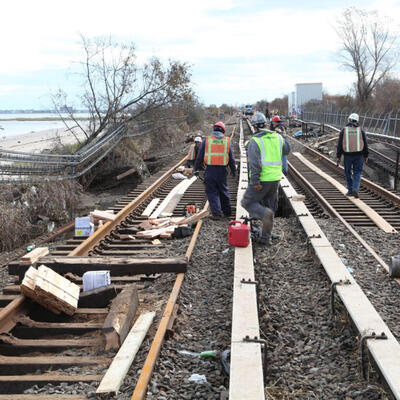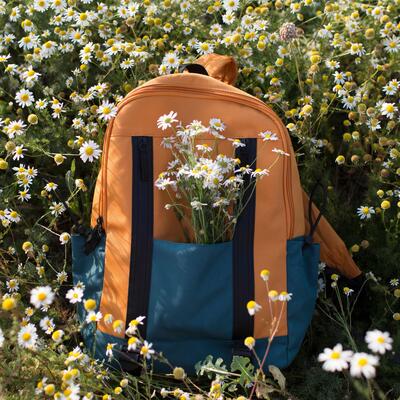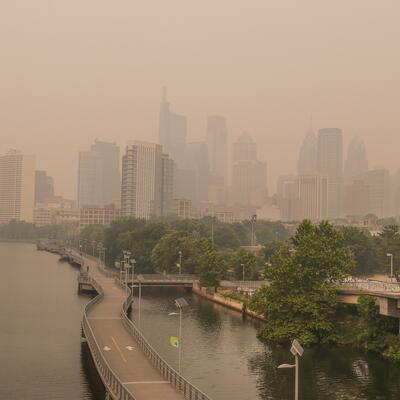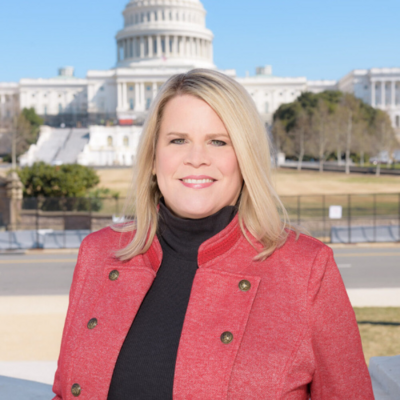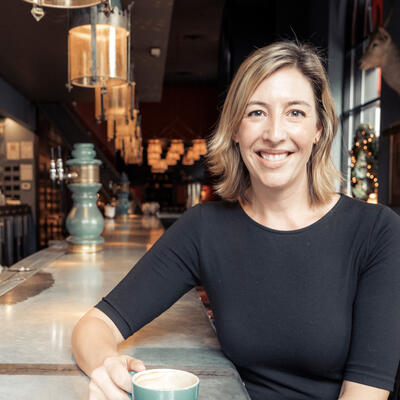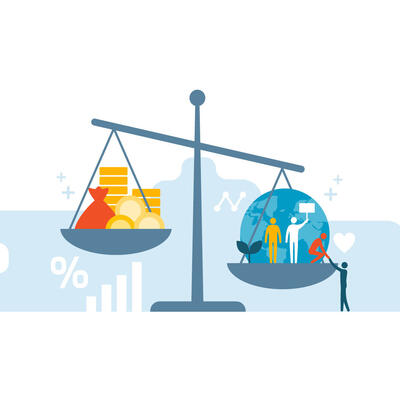
Reimagining Capitalism: Wealth, Power, and Patriarchy
Guests
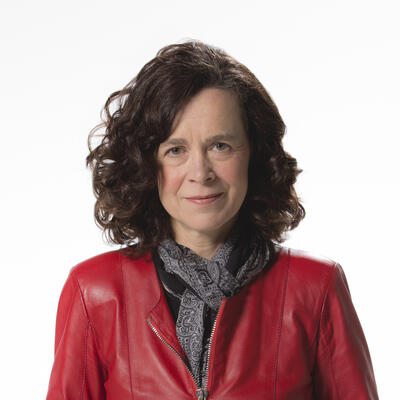
Rebecca Henderson
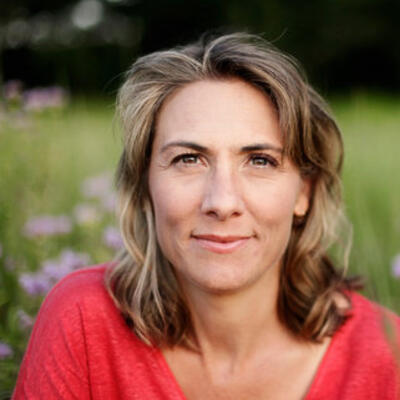
Hope Jahren

Richard Milne
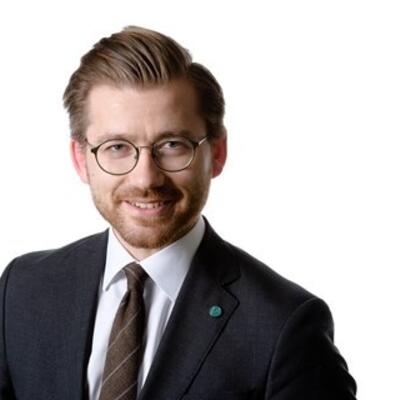
Sveinung Rotevatn
Summary
With inequality booming and climate change looming, is it time to rethink capitalism?
“We've come to the point where making more stuff in order to sell more stuff in order to make more money is breaking down,” says Hope Jahren, Professor of Geosciences at the University of Oslo.
In her new book, "The Story of More: How We Got to Climate Change and Where to Go from Here," Jahren questions whether a healthy climate can coexist with a consumption-driven economy. Rebecca Henderson from the Harvard Business School is more sanguine about the prospects for addressing climate in a capitalist economy
“We have a pricing and regulatory problem,” she says, adding that “we’re not charging the full cost of economic activity.” Henderson is the author of Reimagining Capitalism in a World on Fire and believes capitalism can be harnessed to better serve society as a whole.
“It’s fairly clear to see how to fix it,” she says. “The only thing it requires is a massive cultural and political movement changing the rules that constrain capitalism – but as soon as we can do that, we’re done.”
But is it really possible to support capitalism while fighting climate change? Norway seems like a country doing just that — or is it merely an enlightened hypocrite?
“It’s a sort of country of paradoxes,” says Richard Milne, Nordic and Baltic Correspondent for The Financial Times. “On the one hand it’s Western Europe's biggest oil producer; on the other hand, it’s probably the biggest market in the world for electric cars.”
That paradox is alive and well in Norway, according to Sveinung Rotevatn, the country’s Minister of Climate and Environment, who notes that “in Norwegian politics there’s one expression that you’ll hear more than almost any other expression and that is, ‘What is the new oil?’”
Norway’s sovereign wealth fund, the world’s largest, is supported exclusively by petroleum revenues but has allowed the country to electrify its economy and lead the way in clean-energy technologies.
“I’m happy to report that our emissions have been going down three years in a row now and are predicted to keep going down steadily,” says Rotevatn, “but my job as Minister of Climate and the Environment obviously is to implement more policies to make them go down even faster.”
Related Links
Reimagining Capitalism in a World on Fire
The Story of More: How We Got to Climate Change and Where to Go from Here
The Financial Times / Richard Milne
Norwegian Ministry of Climate and Environment
Part 1 of this program was recorded on April 7, 2020.
Part 2 of this program was recorded on May 25, 2020.
Full Transcript
Greg Dalton: This is Climate One. I’m Greg Dalton. [pause] With inequality booming and climate change looming, is it time to re-think capitalism?
Hope Jahren: We've come to the point where making more stuff in order to sell more stuff in order to make more money is breaking down.
Greg Dalton: What are countries doing to prepare their economies to move beyond fossil fuels?
Sveinung Rotevatn: In Norwegian politics there’s one expression that you’ll hear more than almost any other expression and that is what is the new oil.
Greg Dalton: Expanding oil extraction AND clean energy, supporting capitalism while fighting climate change – can we really have it all?
Rebecca Henderson: The only thing it requires is a massive cultural and political movement changing the rules that constrain capitalism. But as soon as we can do that we’re done.
Greg Dalton: Reimagining Capitalism. Up next on Climate One.
---
Greg Dalton: Is it possible to maintain a consumption-driven economy that doesn’t trash our home or lead to massive inequality? Climate One conversations feature energy suppliers and environmentalists, Republicans and Democrats, the exciting and the scary aspects of the climate challenge.
Greg Dalton: Norway seems like a country that has it all – the world’s largest sovereign wealth fund, supported exclusively by petroleum revenues, that has allowed the country to electrify its economy and lead the way in clean-energy technologies.
Richard Milne: It’s a sort of country of paradoxes. On the one hand it’s Western Europe's biggest oil producer. On the other hand, it’s probably the biggest market in the world for electric cars.
Greg Dalton: Richard Milne is Nordic and Baltic Correspondent for the Financial Times. He’ll join us later on today’s show, along with the Norwegian Minister of Climate and Environment, Sveinung Rotevatn, to talk about fighting climate change while pursuing fossil-fuel capitalism.
Hope Jahren: It’s like being a drug dealer that doesn't use his own product is basically the hard truth of it.
Greg Dalton: That’s Hope Jahren, a professor in the Department of Geoscience at the University of Oslo, and author of The Story of More: How We Got to Climate Change and Where to Go from Here. She joins us in the first part of the show to explore how fighting climate change often involves grappling with issues of wealth, power, and patriarchy.
Rebecca Henderson: There’s a classic Prisoner’s Dilemma here that the individual firm has every incentive to run as hard as possible. The problem is collective. So we have to get business as a whole to act. Greg Dalton: Rebecca Henderson is Professor at the Harvard Business School and author of Reimagining Capitalism in a World on Fire. I began our conversation by asking Rebecca whether capitalism – as a system for making more stuff in order to sell more stuff – is fundamentally flawed.
Rebecca Henderson: We have a pricing and regulatory problem. We’re not charging the full cost of economic activity. I don’t think of capitalism as a system for producing more. I think about it as a system for producing efficient things. It make sure that the right people do the right things at the right time. And when it’s working well, it’s just fantastic. I don’t think we’re gonna solve the problems we face without capitalism. But we have to have real prices and real regulation. So let’s just take beef for example. The production of beef is responsible for a very significant fraction of agricultural emissions and takes up an enormous amount of the planet’s land. And so every time we eat a hamburger, we’re in effect causing very significant harm because we are personally participating in warming the planet. And yet, beef is super cheap we’re not paying for the harm that we’re causing. And so, every kind of light in the system says, more beef, more beef, more beef, because it’s cheap and people love it. And so, we need as a society to be able to say, you know, beef is amazing but it should be rare, it should be special, it should be offset and beef should be expensive. And so we will fix this. In fact, it’s fairly clear to see how to fix it. The only thing it requires is a massive cultural and political movement changing the rules that constrain capitalism. But as soon as we can do that we’re done. We know how to fix this problem.
Greg Dalton: Rebecca, you're quite optimistic and you point out in your book a lot of examples of companies acting in kind of enlightened self-interest and insight leaders that are doing things. Kind of on the margins, you know, the Patagonias of the world the Paul Polmans the Unilevers of the world. But companies are also doing one thing and in their very slick communications when it comes to policy they play a double game. They speak about climate change in public, but their lobbyists and their firms in Washington DC do either don't push on climate policy or they actively try to slow it down. They support the Paris climate accord, yes, they tweet about Trump backing out of Paris, etc. but they don't really put a lot of muscle or effort into climate policy where it matters inside the beltway. They’re much more concerned with taxes, immigration, those sorts of things. They’re afraid of alienating the other side. So I’d like you respond to that double game that I think companies play. Even some of the most sincere chief executives don't really leaning on policy in places where in the dark halls of power.
Rebecca Henderson: I think it's super important to differentiate between different companies. There are some companies that are behaving really badly indeed. They are funding massive public relations campaign saying we can keep running fossil fuels it’s the future, it's gonna be great and at the same time they are pumping hundreds of millions of dollars into modern day forms of climate denialism and into politics in ways that have been totally disruptive. I think there are some firms that are trying to behave better. And, yes, they’re doing things inside their own operations. So, sorry, I wanted to tell a good story. So I'm good friends with Hugh Welsh who runs the U.S. operation of a chemical company called DSM. And he is very active in introducing innovations like Clean Cow. Which is a pill you give to cows to stop them farting as often. It turns out that cow farting and cow belching is a huge source of methane. And so it’d be really good to reduce that. So DSM is funding a number of projects like that. They are very sustainably oriented they talk about it in public. And one of the things that Hugh has been doing is working with the chamber of commerce to change the chamber’s position on climate change. So there are firms that are acting consistently. Unilever for example, is absolutely front and center in pushing for change in climate policy. If you think of the alliance called We Are Still In that’s working with governors and states right across the U.S. They succeed in working in partnership with governors and local NGOs in putting in place commitments that will get the U.S. to within shouting distance of the Paris agreement. So there are firms out there that are trying. Are there firms that are saying all kinds of good things and doing bad things? Yes. Are there firms that will say they care about climate but not advocating for it? Yes. Do we have to change them? Absolutely. But I think it’s a mistake to tell all of business with the same brush.
Greg Dalton: One of the things that underlies some of that is the concentration of power. Because we have, and Rebecca you write about how the top, was it top 40 people in the world control as much wealth as the bottom 50% which is, how is that not shameful in any system that produces that amount of concentration of wealth and power. And Hope Jahren, you write about GMOs are safe for humans to eat, but farmers are forced to buy seeds from near monopolies Monsanto and DuPont. So I'd like to hear Hope talk about that concentration of power which you write about in Iowa how the small farms have gotten smaller and the huge farms have gotten huger. And we have this disparity of power that underlies all of this, Hope.
Hope Jahren: Yeah, I mean there's also a fundamental question here in the changing nature of human labor, right. So there were folks that were very concerned with population increase in the 70s and how was the earth gonna feed all these people. And a tremendous amount of research was done on plants and animals. And it resulted in a whole new set of brave new world, all new consortium of creatures really. I mean farming just doesn't take us many people because you know to get a bushel of corn you used to have to plant a basketball sized court. And now you can get it out at about a parking space. Pigs used to have five piglets a year. Now, mother pigs have 10 piglets a year twice a year, right. And so the amount of food that we can create per unit labor has just skyrocketed. And so that labor has been consolidated using you know, industrial --
Greg Dalton: Fossil fuel driven industrialization.
Hope Jahren: Yeah, I mean enhanced technology and enhanced yield, wildly enhance yield. Which is always been done through breeding, is changing the amount of labor that's needed to produce way too much food, right. And so also the seed folks are just a few people producing all of these food. But at the end of the day, we have to ask questions about, you know, is it right to have the entire country food supply concentrated into the hands and pockets of a few people to sell and withhold as they see fit, right. So by mass producing all these and way too much, you know, I mean, corn is the great example. We can’t find way, we turn it into sugar and squirt it all over everything. We can’t even cram it down our mouths fast enough, we’re having to turn it into fuel. We burn fuel to plant corn to grow corn, to turn it into fuel to fuel automobiles. It’s like an environmental Mobius strip. I mean we’re doing crazy things at this point just because we can produce so much food and we’re desperate to do something with it besides feed truly hungry people.
Greg Dalton: Rebecca your thoughts on addressing that the concentration of power in capitalism in corporate America right now that has essentially kind of taken over the government. Who’s gonna tackle that concentration of power and are we gonna solve climate because climate challenges, presents cost to some of that very concentrated power.
Rebecca Henderson: I don’t think we’re gonna solve climate change until we address the concentration of economic power. And that means both addressing inequality and changing the rules of the game. I'm sure we need to get political. I talk a bunch about genuinely free and fair capitalism. And free and fair capitalism means you compete hard against other firms. It means you don’t go to Washington and change the rules such that there just a few of you in control fixing the prices and we have increasing evidence pushing down wages. That the one of the reasons inequality has increased is because economic power has become so much more concentrated. So labor has to work for a few, you know, people have to work for one of a few firms. And at the same time that concentrated economic power is pushing back against moves like raising the minimum wage or may I get topical, guaranteed sick leave or comprehensive healthcare. I mean these moves that would really help the poorer 50% of the population that actively resisted by this concentrated power. And I think we have to fix inequality because without it we won’t generate the political momentum to address climate change and because we should fix it for its own sake let me say. And we have to fix politics. So one of the things I find myself saying a lot and I know how crazy this sounds, is the business should get actively involved in remaking of political institutions. In making democracy much more ground-level much more responsive and please in pulling money out of politics. So I think business is going to suffer immensely from the current situation and that the smart thing to do is realize that. And so okay, let’s pull the money out let’s pull ourselves out. Let’s put the government, a partnership between government and business at the heart of our society in the service of the whole society.
---
Greg Dalton: You’re listening to a Climate One conversation about Reimagining Capitalism. Coming up, how power and patriarchy can be just as big an impediment to progress on climate as elsewhere.
Hope Jahren: What I've never understood is why people are surprised to find that these truisms that are so core to surviving as a woman also have their expression within academia and within science per se.
Greg Dalton: That’s up next, when Climate One continues.
---
Greg Dalton: This is Climate One. I’m Greg Dalton, and we’re talking about Capitalism and the climate crisis with Hope Jahren, Professor at the University of Oslo and author of The Story of More; and Rebecca Henderson, Professor at the Harvard Business School and author of Reimagining Capitalism in a World on Fire. Rebecca writes that she grew up with a bifurcated identity, keeping her business-consulting job and passion for nature in separate boxes.
Rebecca Henderson: At the time it seemed natural. My professional life was what I went up to do. I made money, I kept my head down. And in my spare time I walk in the mountains and have trees. It came to an end when I saw Al Gore’s movie. My brother, who’s a freelance environmental journalist had been sending me scientific papers for some time. So I knew that climate change was an issue. But it wasn’t until the film that it really came home to me. And I’m one of the people for whom it completely changed my life. I came back to the office. I emailed everyone on my contact list. I told them that this was the number one problem and we have to focus on it now.
Greg Dalton: And you grew up spent hours in trees and developed a deep love of nature. But then you worked at a consulting company, you know, closing down factories and became a chair and professor. So tell me about that love of trees hanging out them and reading them
Rebecca Henderson: My family was a little troubled when I was growing up like so many families. And so I spent an enormous amount of time outside. There was one tree in particular that I love. It was a 300-year-old copper beech. It must have been three stories high and it had a huge branch about six-foot off the ground that you could lie on and look up at the sky through the branches of the tree. And for me, there was nothing more beautiful and nowhere more safe. The smell of the trees the sunlight filtering down through the leaves. It became my touchstone. I think it’s the reason I’m so emotionally engaged with protecting the natural world right now. But at the same time I knew when I had to make a living. So I went to MIT and got an engineering degree. I thought that was my quickest route to a steady job.
Greg Dalton: Hope Jahren, your book Lab Girl was a story of trees, love, and science. And that you write that a tree's wood is its memoir, trees’ rings tell its age and story. How trees been important for your understanding of your own story?
Hope Jahren: I started studying trees when I was a graduate student. Because I felt like they would give me enough mystery to last me my whole life as a scientist. I started out in college studying rocks and I studied soil as a graduate student. And I remember making experiments that were designed to bring the climate together and I was gonna measure, you know, aspects about of and aspects of the field and the water availability and all these kinds of stuff. And then I was gonna measure, you know, the trees’ performance. And it came time for the trees to kind of do their part and bloom and produce fruit and everything like that. And none of them produced any fruit. And not just the trees at my site but none of the trees in the county and nobody knew why. I talked to the local landowners and ranchers in Colorado and they said, yeah, trees just do that sometimes. And it was kind of, I don’t know if it was early or late in my scientific development but there I was a grad student and I sort of realized, you know, these trees aren’t here so that I can have a successful PhD. They're trying to do something for themselves. I mean they’re living their own lives and they’re trying to accomplish something. And truth is part of that it’s a strategy that's useful at certain times for certain things. And it’s also an activity with cost. It costs energy and etc. And so invoking that is not for my benefit it’s part of a larger mystery that will take a long time to even get close to. I could feel that intuitively. And so I turn my attention toward trees and toward small plants and sort of what does it mean to be a plant and how do you respond to the basics of life. And those were the experiments I’ve done ever since.
Greg Dalton: You both write about some of the gender barriers in your careers and having to encounter sort of the male dominance in science and business. Oceanographer Sylvia Earle broke the glass ceiling in science in 1970. She joined other scientists living undersea for up to 60 days. I interviewed Sylvia Earle a few years ago in front of a live audience. Here's a clip we played from the documentary Mission Blue that shows how the first group of female aquanauts was portrayed.
[BEGIN CLIP]
Male Speaker: Now a team of divers will attempt to live for two weeks as quiet residents on the seafloor. Ironically, these aquanauts are not men with extraordinary physical endurance and stamina, but five young and attractive women. The world’s first real-life mermaids. Their leader is a renowned scientist, Dr. Sylvia Earle, a marine botanist and an experienced diver.
[END CLIP]
Greg Dalton: That's a clip from 1970 talking about Sylvia Earle's and other female scientists breaking into the world of bearded men scientists. Hope Jahren, 50 years ago I know you’ve encountered some of that. We’re told at one point you’re prevented from entering your lab I think because you are pregnant. So how far have we come in that 50 years since that was recorded?
Hope Jahren: I think the problems in science in terms of sexism are part and parcel with the basic challenges of walking through the world wearing a woman's body. I mean I think the, you know, feminist theory brings us back to violence against women, reproductive rights and equal pay for equal work. And those are the three core issues that we struggle with in every profession in every field of life in every theater of being. And academia has problems around each of those. You know, we have harm, violence, rape, murder in academia and in science, right. We have problems being paid equally for equal labor and we also have tremendous awkwardness at the very least, and discrimination associated with women invoking their fertility and having children taking care of children, etc. And so, yes, I think those things are with us. They find a different expression culturally as we move through time. But I feel that this is our piece of the struggle. What I've never understood is why people are surprised to find that these truisms that are so core to surviving as a woman also have their expression within academia and within science per se.
Greg Dalton: Rebecca Henderson, you write about giving presentations in the highest heels you can imagine. And sometimes you get concerned if you start talking about values or purpose they’ll write you off as a simpering female. What’s been your experience in the business world and business education?
Rebecca Henderson: This is very controversial. But I think it's sometimes useful to think about men's way of looking at the world versus women’s way at looking at the world. And it’s controversial because of course men are very different and women are very different. So I’m talking about a central tendency a particular expression of masculinity, which I think one sees in the business world. That life is about competition, life is about the individual, life is about aggression and that that’s what we strive for. And life is also about rational force about managing the numbers about showing that you’re smart. And, as I said, I don’t need to say that that’s like men and this is like women. But that central tendency that way of being in the world has become very dominant in the business community. And in my own career, I thought it was necessary to learn that language and to be able to really participate in that conversation. And it’s one of the reasons I have an undergraduate degree in engineering and a PhD in economics. I wanted that to be absolutely no doubt that I could handle the numbers understand the bottom line compete as hard as any of the rest of them. And I still find now when my research is more than ever focused on questions of, you know, what we sometimes call mushy stuff, this drives me crazy as if that is an emotions were somehow not real or not important. When in reality, as we know now from the modern psychological research, most people are driven most of the time by their emotions and their values. And all the rational stuff we come up with is our forebrain making up excuses for what the subconscious is just cruising through. So yes, this has been a real tension in my life in the last 10, 15 years. It’s one sort of story I sometimes tell to illustrate it. So I teach students about climate change and the day it just represents and I often say, but there’s a business case as business people we can make money by developing solutions to this problem and that's really important. And again I’m generalizing horribly but many of the men will come up to me and say,, “Rebecca tell me more about that business case. I want to be really certain.” And far more of the women come up and say, wait, we are destroying the planet in the service of our bottomline. How do we stop doing that? And again it’s a generalization but that is the tension in our society that I think we all have to live inside.
Greg Dalton: We’re talking about Wealth, Power, and Patriarchy on Climate One. My guests are Rebecca Henderson from the Harvard Business School and author of Reimagining Capitalism, and Hope Jahren from the University of Oslo and author of The Story of More. I’m Greg Dalton. Hope Jahren, I've learned from some climate justice activists about how racism patriarchy are really at the root. That a lot of the conversations I've had about changing this technology changing this policy don't get to that deeper root. And they would say that getting back to more communal community-based nurturing system away from patriarchy is essential for really solving climate. What do you think?
Hope Jahren: Well, what I run into the most is when I talk to people about overpopulation. And I've had a number of men really come up to me and with seemingly like some pretty severe neurosis about these uncontrollable women everywhere having baby after baby. And the planet is doubling and doubling beyond control. I looked into it and people have been freaking out about overpopulation basically since they were able to count each other. There’s all these writings from Mesopotamia talking about, you know, can the earth handle all these people occurring. One thing that and I did a lot of research on my last book The Story of More. And the one thing that we can see with lowered birthrates is that when the gender gap closes. That means when opportunity economic opportunity health outcomes and also political participation is close between men and women within the society, then the number of children born within a woman's lifetime is low. Low at replacement level or even lower than that. And that doesn't just apply to rich countries. It doesn't mean that there's an awful lot of opportunity there. It just means that men and women are sharing any amount of opportunity and justice and fairness there. And that is where we have the lowest number of births per woman's lifetime. So I would say that the only surefire way we can reduce population growth is to close the gender gap. And if that isn’t fundamental to reversing or slowing down the damage to the earth, I can't think of another example more tightly correlated to patriarchal inequality than that.
Greg Dalton: And as we look to the future, Hope Jahren, you talk about some improvements in the human condition. Prenatal care has increased, drinking water more available immunization rates are up poverty is down. You also write about anxiety, depression rampant among people who are climate conscious. I think anyone who is climate conscious has some anxiety, depression at different moments. So how do you look at the future knowing the data you cite, Hope, but also the climate reality of anxiety and depression, you write about?
Hope Jahren: I have always believed that and I was taught that love is a gift and hope is a duty. And that if you want to be hopeful that requires courage and that we don’t have the option to give up on the world that we compromised, right. It's every generation is consigned to grapple with the possibility of its own annihilation, and this is ours, right. And answers in the past have come from places that were unexpected or even unwelcome. And those solutions were sometimes too late for many, but they were never too late for all. I am a climate scientist and so my whole life is full of people working hard to get the data to show what's happening and to monitor the earth as if it were a sick patient. We don't quite know what the diagnosis is we don't quite know what the treatment is but we’re very concerned that the earth is not well and not getting better. You know that being said, I have to admit that being part of climate change solutions research is probably about the most fun thing as a scientist you can even think of. Because every idea is on the table it doesn't matter how crazy something sounds, you can always get somebody who will sit down and talk about how to scale that up to the point where it changes the world. Yes, we’re talking about something that reflects damage and harm but that’s what makes it so important. And that's what brings such energy to anything that might look like a solution. And it's not gonna be a single sweeping solution there’s gonna be a million little solutions that come together at least in the short term in order to turn things around. And I feel very hopeful and very positive. And I don't know if it’s just part of who I am or who I want to be or the kind of people that I spend my time with. But, I can feel that we’re close to some really good things just because of the amazing people I know who care so very much.
Greg Dalton: Rebecca Henderson, how do you feel about the future and can you talk about that with your whole self openly at Harvard business school.
Rebecca Henderson: I too I’m very hopeful. I have a friend called Erik Osmundsen who some years ago bought a garbage company in Norway. He thought that transforming the waste business making it a recycling business was one of the most effective things he could do to make a difference against climate change. But after he bought the company he found the whole industry was radically corrupt. People were mislabeling waste and shipping it to Africa. They were dumping toxic chemicals into the fields. When he went public with what was happening he got death threats. His children have to have police protection at school. I ask him sometimes if he regretted what he did. And he looks at me as if I’m crazy. He says, nothing special about me, it’s the team it’s just what had to be done, of course that was a bad time and I had to talk to my wife about it. But he’s so excited about what he’s been able to do. He’s been able to transform the garbage business right across Scandinavia. He’s made a good deal of money which is great. But what he cares about is the difference he’s made in the world and I meet people like that all the time. When I started teaching Reimagining Capitalism there were 28 students in the room. Now we have nearly 300 nearly a third of the second-year class. Students eat, grieve and sleep this, you know, what can we do to make our world more just and more sustainable. Humans are infinitely resourceful. Do I think things are likely to get worse before they get better? Absolutely. I don’t think that’s an easy or quick or cheap solution. But I do think we will solve these problems, yes.
---
Greg Dalton: Rebecca Henderson, Professor at the Harvard Business School and author of Reimagining Capitalism in a World on Fire. We also heard from Hope Jahren, Professor in the Department of Geoscience at the University of Oslo. This is Climate One. Coming up, we’ll take a deeper look at Norway as an oil-rich state that’s trying to go greener.
Sveinung Rotevatn: I’m happy to report that our emissions have been going down three years in a row now and are predicted to keep going down steadily. But my job as Minister of Climate and the Environment obviously is to implement more policies to make them go down even faster.
Greg Dalton: That’s up next, when Climate One continues.
---
Greg Dalton: This is Climate One. I’m Greg Dalton. When it comes to fossil-fuel capitalism, is Norway the perfect example of having it all — or just a walking contradiction?
Richard Milne: Every article I write about this the main comment is, you know, Norway is just a hypocrite it’s made all this money from oil, you know, now it's trying to act to all enlightened.
Greg Dalton: Richard Milne is Nordic and Baltic Correspondent for the Financial Times. We spoke about Norway’s split personality on energy and climate change along with Sveinung Rotevatn, the Norwegian Minister of Climate and Environment. I began by asking Richard whether Norway really is a climate hero or a climate hypocrite.
Richard Milne: Well, I think that’s the big question really. For me it's such an interesting debate because it’s a sort of country of paradoxes. On the one hand it’s Western Europe's biggest oil producer. On the other hand, it’s probably the biggest market in the world for electric cars. It’s got the world's biggest sovereign wealth fund that is entirely funded by petroleum revenues among the other hand it’s, you know, an ethical forerunner that isn’t invested in coal isn’t invested in some oil companies it spends a lot of money on conservation abroad. It’s got some criticism about what it does in conservation at home. So I think it's a really interesting question.
Greg Dalton: Minister Rotevatn, your take on that the contradictions do you agree with those kind of dual personalities of Norway?
Sveinung Rotevatn: Well, I think I'll agree that there is certainly a paradox swarming my country. Because as Mr. Milne says we are a world leader when it comes to implementing climate friendly technologies electric cars, CO2 storage, public transportation what have you. But on the other end, obviously we have been for many decades and are still a major oil and gas producer. And even though we are getting more restrictions on petroleum we’re still producing we’re still exporting. And I guess a lot of the people see that as a paradox, but I mean it's important to bear in mind also that the debate surrounding petroleum is very much alive in Norwegian politics. There’s one expression that you’ll hear more than almost any other expression and that is what is the new oil. So everyone is always looking for the new oil, you know, what are we gonna be making a living out of for the next decades. And I think in some ways that is a bit of an exaggerated debate because oil and gases are the only thing that people in Norway are working on. And we have markets that are really promising and that are increasing in importance like fisheries for example, that is our second biggest export. We’re still a strong industrial nation, I think we’re pretty much the only industrialized at least Western nation that still has a shipbuilding industry of any proportion, for example. So there are lots of promising businesses for the future, but I mean ever since the 70s and up until today oil and gas has been increasing in importance and is still our major industry.
Greg Dalton: Several European countries have reduced their carbon emissions since 1990. Germany and the UK are down somewhere around 40%. Norway's total emissions are up over 1990. So with a country that's the second richest country in the world is that a really good record to be basically increased emissions over such a long period of time for a country that claims to be so green?
Sveinung Rotevatn: No, it’s not a good record. And I mean I belong to a liberal green party. So I mean we’ve been critical of government climate policies so it’s easy for me to be critical. However, I think there are some nuances to the story that need to be told. One important nuance is that what most other countries are working on to reduce their emissions isn't really anything that is available in Norway and that is simply because we’re there already. For example when it comes to our power production, you know, it's close to 100% renewable already and has been for many years. So there are no coal plants to phase out for example. And also when it comes to heating for example, and houses that’s all electric and not fossil fuel based. So there are some problems that we simply don’t have where other countries have reduced their emissions quite heavily. However though, the reason why our total emissions have increased since 1990 a little bit is because the major increase in oil and gas production over the 1990s, especially. And at least obviously indirect emissions when you sell oil and gas to other countries but it also has quite big direct emissions from the gas-fired power plants on the production facilities. And also emissions from road transport in Norway have increased a little bit since 1990 and that is because there are 1 million more Norwegians today than there were in 1990. A very huge increase in population. And in a country of 5.3 million people that is a lot. Also our gross domestic product has doubled since back then. So that’s the main reason why our total emissions have been up since 1990. But I’m also happy to report that our emissions have been going down over the last three years they’re down three years in a row now and are predicted to keep going down steadily. But my job as Minister of Climate and the Environment obviously is to implement more policies to make them go down even faster.
Greg Dalton: Richard Milne, are you as optimistic as Minister Rotevatn about the prospects for a new oil to power Norway's economy?
Richard Milne: Well, he said new oil is the trendy phrase. And now I think another one is the green shift they talk about or the green change. I am a little bit more skeptical because I think if you look at the last time oil prices were under pressure which is 2014, 2015. Again, there was a lot of discussion about a green shift in the economy. And I think at the top level not a lot happened. I think it’s admirable some of the things they’re trying to do, but oil is such a huge part. It is still the biggest industry still the biggest export industry. And it also seeps into Norway through the state coffers. Norway is about to use a record amount of money from the oil fund into its budget. And that makes the state therefore sort of indirectly supported and propped up. And that's hard to turn off once you started using that money in the budget. So on the other hand, I would have to say Norway is a very lucky country in many ways. I mean it has these huge oil reserves that its use that it's very cleverly put into a sovereign wealth fund. But it also has as the minister just said as nearly a 100% hydroelectric power. That’s an incredible situation to be in. Has very rich fish resources as well beautiful country in terms of tourism. So there is a possibility there. I just think that probably you don’t really kill the goose that lays golden eggs until you have to. And so I mean that’s gonna be the question is how quickly can you wean yourself off oil.
Greg Dalton: So Minister Rotevatn, is Norway gonna basically milk that goose until there's no more oil to get out of it. Take all the oil out of the ground?
Sveinung Rotevatn: Well, the answer is no. And actually already a lot of very promising areas out at sea where there are big petroleum resources are held off from the petroleum industry and are preserved mostly due to political negotiations. Like so for my party for example, it was important when we debated go into government that some very vulnerable areas under Norwegian continental shelf are kept away from the oil industry. And just recently we introduced a new white paper to parliament where we’re drawing a clear line in the north in the Barents Sea where we’re saying that north of that line there will be no petroleum activity whatsoever. And we're the only Arctic country to introduce such a clear limit to petroleum activities in the high north. So there are political debates ongoing all the time about restrictions on the oil industry. And I would also like to say that well, I think it’s debatable whether Norway wants to, you know, kill that goose or not because what we are certainly promoting continuously internationally is policies to halt the demand for our main export, you know. We’re a major player in all climate negotiations we’re highly active on the EU level even though we’re not a member. Trying to have enhanced climate targets more restrictions on fossil fuels more efforts put into renewables. So in many ways, you could say that we’re sort of advocating internationally to stop the demand for our own main export. And if that isn’t the paradox then I don't really know is.
Greg Dalton: If you’re just joining us we’re talking about the split personality of Norway as a major oil producer and a major country pushing toward cleaner energy. My guests are Richard Milne, Nordic and Baltic Correspondent for the Financial Times and Sveinung Rotevatn, Minister of Climate and Environment with Norway and the Liberal party. I'm Greg Dalton. Richard Milne, another aspect of this is the Norwegian sovereign wealth fund over a $1 trillion, the largest in the world you and your colleagues at the Financial Times have covered that. So how much of a player is that in the green side of this because that’s the side that Norway is fairly progressive actor and Indonesia, Brazil other places.
Richard Milne: Well, the sovereign wealth fund for me is the biggest story in the Nordics it’s pretty much invested in every single company in the world. So it has enormous power and I think it’s still actually figuring out just how much power its got. It was in the beginning a very progressive investors seen as very ethical and was at the forefront of ethical investing. I think in recent years it’s kind of fallen down that ranking and it is come under quite a lot of pressure even in Norway there are some other investors that ahead in terms of sort of climate change risk. And that’s something that it’s, you know, this is a very active debate about recently. So the government proposed not so long ago that the fund should get out to some oil and gas companies very limited number certainly not the biggest ones. It’s a very difficult position also for Norway to be in. I mean every article I write about this the main comment is, you know, Norway is just a hypocrite it’s made all this money from oil, you know, now it's trying to act to or enlightened. I mean, I think, you know, Norway is Western Europe's largest oil producer that’s the starting point. So, I mean anything else it can do over that has to be applauded. But I think it could probably raise its ambition levels a bit higher.
Greg Dalton: Minister Rotevatn, I’d like to talk about the prospects for tourism been talking about what post-oil future for Norway. The melting and the warming in the Arctic is opening up to tourism, resource extraction, etc. I had the opportunity and the privilege of going to Svalbard recently beautiful archipelago, that’s a remote part of Norway where there used to be coal and now there is research international climate research and increasingly tourists like me toddling around. Went to Longyearbyen where that day I was there that Robert Plant lead singer of Led Zeppelin was performing and it's showed me either how I know, he’s going down, or Longyearbyen is coming up, maybe both. But when Led Zeppelin comes to a little town in the Arctic that tells us something about tourism. So is that a big part of the future?
Sveinung Rotevatn: Yeah, I think so and you're happy and lucky rather, to have been able to go to Longyearbyen. I mean it’s a fantastic spot. Maybe not that environmentally friendly I mean this is probably the one place in the world with biggest carbon footprint per capita because you know, there are I guess around 1800 people living there and they have their own coal-fired power plant because that's the way they get their energy but and never mind. It’s a fantastic place to go and if you're looking for something that is the most northern in the world you’re gonna find it there. You’re gonna find the most northern hotel the most northern police station the most northern liquor store etc. etc.
Greg Dalton: Most northern gas station also.
Sveinung Rotevatn: Absolutely. No, I think there is a big future in tourism. But actually when I was younger I had a summer job over quite a few summers where I was guiding tourists around the Western fjord landscapes in Norway. And the main attraction that we took them to was this huge glazier that’s been there for centuries and centuries. And one thing I noticed was that every summer when we came back the glazier was a bit smaller and a bit smaller and a bit smaller. So I was actually able to see global warming firsthand from a very young age. And this is something that we’re still seeing all around Norway and certainly in the high north where temperatures are increasing faster than other place in the planet. Svalbard for example, where you were lucky to go had a temperature increase of not 1.5° or 2°, but 5° since the 1970s. So things are warming faster up there and the consequences are quite dire from everything from, you know, small species that you’ve never heard of, to polar bears. So global warming is a frightening prospect in the North but tourism is one of our big industry since it’s one of the industries that I’ve been increasing the fastest over the last couple of years. I guess this year they’re probably gonna have a little bit of a setback but I think there is a big future in tourism for Norway.
Greg Dalton: Richard Milne, as we wrap up what’s the story you'd like to crack in terms of Norway's sovereign wealth fund and its conflicted relationship with oil. What would you like to crack what story would you like to find?
Richard Milne: Well, I think it’s even broader than the sovereign wealth fund. I think what the minister is talking about what's going on in the Arctic in Norway. I mean Norway is actually the most aggressive country in drilling for oil in the Arctic. And, you know, I think it is a crucial area in the world in working out what is sustainable in the Arctic. How you can have sustainable development. I mean tourism is tourism if you have lots of cruise ships, you know, is that sustainable. What happens if a cruise ship has an accident up in Svalbard is there any way of rescuing it. Fisheries, you know, fish farming how sustainable is that? And when I've done reporting in the Norwegian Arctic what you see is there isn’t any easy answer, I mean you can think that having oil there is problematic but when you look at what could replace oil in terms of tourism in terms of fish farming they’re not simple solutions either. So I mean it's a real to make the Arctic work as a place that you can have people living there working there the economy is sustainable I think that’s gonna be huge, huge issue in the future.
Greg Dalton: Last word Minister Rotevatn. It sounds like Norway is trapped by its wealth.
Sveinung Rotevatn: Well, I wouldn't really say so. I think that we’re continuously working with our grid shift. We are a quite dynamic economy. There are new businesses coming up all the time. And I think also that, you know, it's easy to get trapped so to say in always focusing on natural resources and big industrial companies when you’re talking about an economy. But I think the root of the Norwegian economy as is the root of most modern economies is its people and our service sector. And it is not like Norway became a very rich country when we found oil or when we started fish farming or anything else. Norway has been a rather wealthy country for a long time. And that is mostly due to a country with a high level of education with very low corruption levels with a strong and trustworthy bureaucracy with an egalitarian culture with rather small economic differences between people. And I think that's the most important trait of the Norwegian economy and Norwegian society worth preserving for the future and that is gonna be the building block for an ever-growing Norwegian economy, hopefully.
---
Greg Dalton: We’ve been talking about Norway’s dual identity as a major oil producer and a major country pushing toward cleaner energy with Sveinung Rotevatn, Norwegian Minister of Climate and Environment, and Richard Milne, Nordic and Baltic Correspondent for the Financial Times.
Greg Dalton: To hear more Climate One conversations, subscribe to our podcast on Apple Podcasts, Spotify or wherever you get your pods. Please help us get people talking more about climate by telling a friend about our pod. It really does help advance the climate conversation.
Greg Dalton: Kelli Pennington directs our audience engagement. Tyler Reed is our producer. Sara-Katherine Coxon is the strategy and content manager. Steve Fox is director of advancement. Devon Strolovitch edited the program. Our audio team is Mark Kirchner, Arnav Gupta, and Andrew Stelzer. Dr. Gloria Duffy is CEO of The Commonwealth Club of California, where our program originates. [pause] I’m Greg Dalton.
